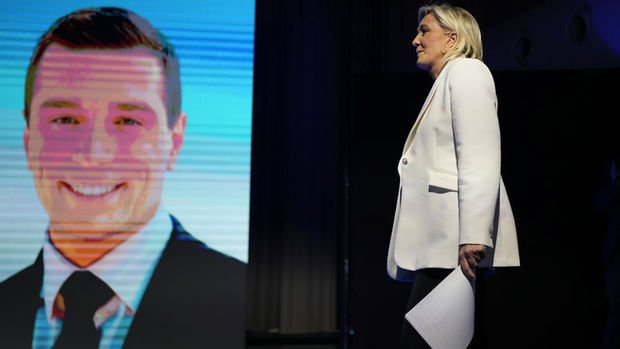Pessimistic forecasts for the euro after the far-right victory
The European Parliament elections caused a great stir worldwide with the rise of the far-right. French President Emmanuel Macron decided to hold early elections after his party was defeated in the European Parliament elections. While the euro weakened after the elections, analysts pointed to political risks and did not predict a bright future for the currency. The far-right victory in the European Parliament elections also brought question marks about the future of the euro. Following the election results, the euro fell by 0.5 percent against the dollar in Asian transactions, while the Euro/Dollar was traded at 1.0748 for a while. The euro had gained approximately 3 percent from its April low due to the European Central Bank (ECB) starting to cut interest rates earlier. Evaluating the elections, Credit Agricole G-10 currency strategist Valentin Marinov said, “These results can be seen as a blow to the positive outlook for the euro in recent weeks. The widening of bond yield spreads will also be negative for the euro.” Following the election results, French bonds lost value against their German counterparts in the futures market, leading to a widening of the yield spread. Singapore-based RBC Capital Markets strategist Alvin Tan predicted that the euro/dollar could fall to 1.05 in the third quarter and said, “Political risks for the euro are increasing again.” According to Morgan Stanley, not only political risks but also the ECB’s inability to speak clearly about the interest rate path is a risk for the euro. Strategists including Matthew Hornbach argued that the euro is more dependent on US data and Fed decisions due to the ECB’s unclear path. MACRON DECIDES TO HOLD EARLY ELECTIONS DUE TO THE FAR-RIGHT VICTORY IN THE EP ELECTIONS MACRON DECIDES TO HOLD EARLY ELECTIONS DUE TO THE FAR-RIGHT VICTORY IN THE EP ELECTIONS The rise of the far-right in Europe The far-right’s lead over the centrist parties in the leading countries of the Eurozone in the European Parliament elections brought about radical decisions. Following the election results, French President Emmanuel Macron announced the decision to hold early parliamentary elections. Macron’s liberal Renaissance party received 15 percent of the vote in the EU Parliament elections, while Marine Le Pen’s National Movement received 32 percent support. While early elections will not affect Macron’s presidential seat, they will be important for his party’s political future. The first round of parliamentary elections in France will be held on June 30. Independent EU policy advisor Yves Bertoncini said of Macron’s move to hold early elections: “It is not only a gamble, but also a daring move. Usually, those who make such moves do not have many cards left in their hands.” In Germany, the ruling social democrats also achieved the worst result in EU parliamentary elections in history, falling behind even the far-right AFD. In Italy, as expected, Prime Minister Giorgia Meloni’s Brothers of Italy party won the EU Parliament elections.


